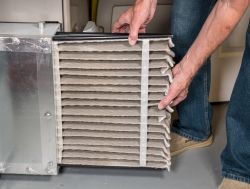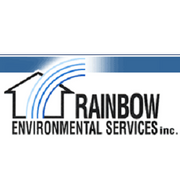
When it comes to the quality of the air circulating through your home, several factors can influence it, from pollutants to the development of black mold. Understanding indoor air quality requires careful assessment and evaluation, with a comprehensive knowledge of irritants. Determine whether you should have your home’s air evaluated by understanding how quality is measured and what you must look out for.
What Are Common Signs of Poor Indoor Air Quality?
There are many signs you will notice if your indoor air quality is poor, ranging from physical health to the condition of your home and its systems. Physical manifestations of air problems can present as something simple like allergies, a runny nose, or cough, and can progress to include breathing problems and nausea.
If no physical symptoms are present, you may notice visual signs, like a large collection of dust around your home’s vents or even black mold growing in air ducts or on walls, ceilings, and floors exposed to high moisture.
How Can You Limit Indoor Air Pollution?
 Air pollution can invade your home through various means, like cigarette smoke, kitchen smoke, pollen, and black mold growth. The easiest way to keep pollutants from building up in your home is through proper ventilation and careful examination.
Air pollution can invade your home through various means, like cigarette smoke, kitchen smoke, pollen, and black mold growth. The easiest way to keep pollutants from building up in your home is through proper ventilation and careful examination.
Change your air filter every three months to keep contaminants out of air ducts and keep carpeting dry to discourage mold growth.
How Can You Increase Ventilation?
Letting fresh air into your home is ideal for fighting poor air quality, particularly if it is warm out and the allergen counts are down. However, there are other steps you can take to limit your exposure to pollutants. For example, when cooking with grease in the kitchen, use exhaust fans to help remove the smoke from gathering in the room.
If you notice that your home’s air quality is declining, consult the team at Rainbow Environmental Services in Cincinnati, OH. For three decades, these professionals have provided the assessment, detection, and removal services you need to combat poor air quality in your home, whether you have black mold or asbestos issues. Visit them online to learn more about their services, or call (513) 624-6470 to schedule a consultation.
About the Business
Have a question? Ask the experts!
Send your question

